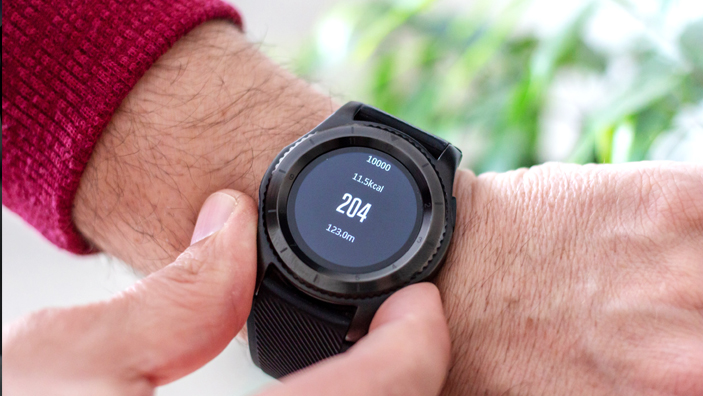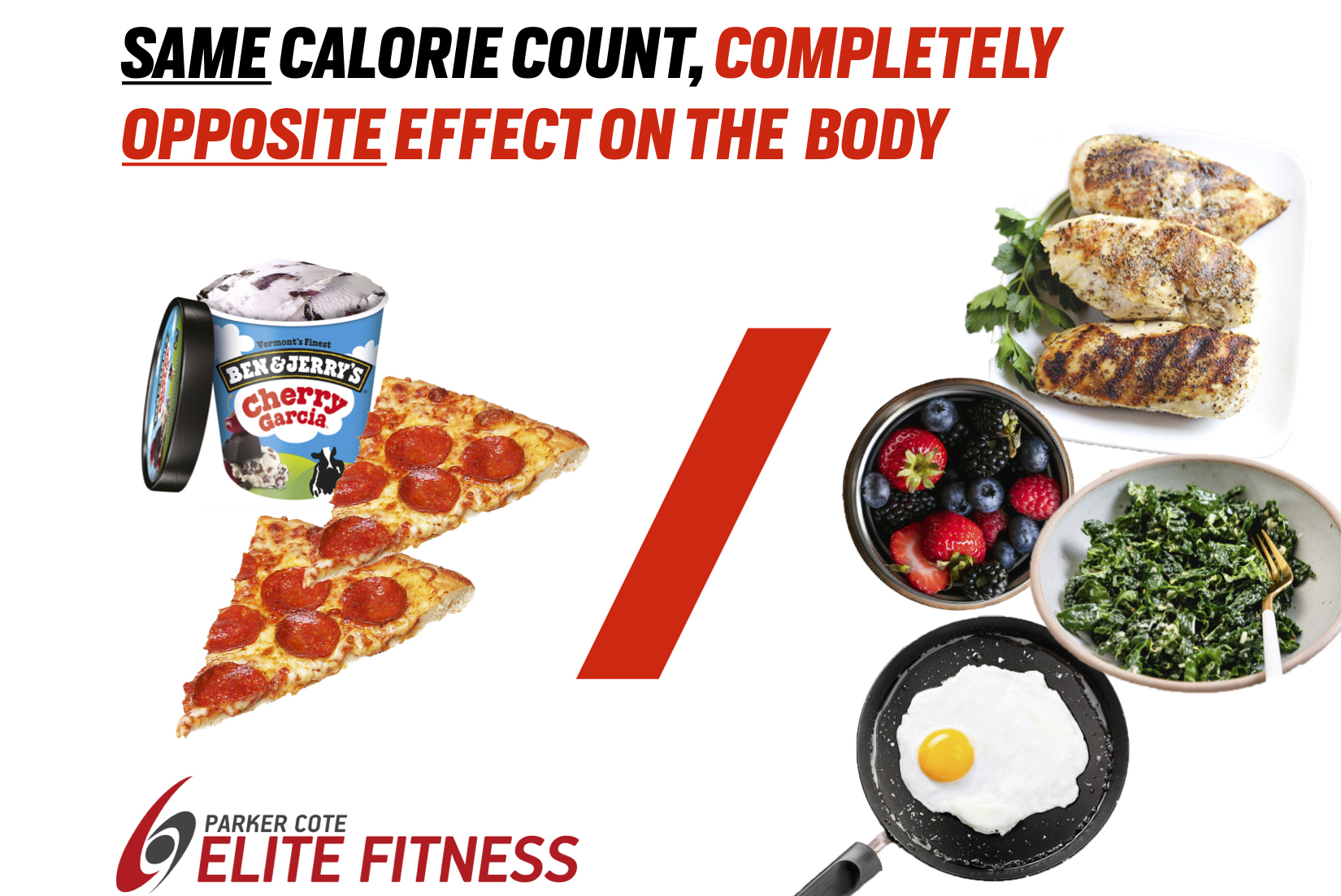I don’t count calories. In my 19 years straight of consistent workouts and eating well, I have never counted calories, never will.
The effect on the body of the macronutrients (protein, carbs, and fat) and their subtypes is far more important than calorie counting. I’m all about longevity, and calorie counting (or macronutrient counting for that matter) simply doesn’t have a place.
Maintaining your health and fitness requires hard work and discipline, but the process should be fun. Calorie counting is not only pointless but will start to feel like a job, and won’t last. Even if you get some sort of temporary weight loss result from it, you’ll stop counting shortly after, and go back to where you were when you started, or worse if you take extreme measures.
I’m not ignoring the fact that an overall decrease in calories will lead to weight loss. How much of that weight lost is fat versus muscle? Lots of factors can impact the answer to that question, but if you are simply reducing calories, it’s likely muscle loss.
All calories are certainly not created equal.
400 calories of kale and 400 calories of cheese are going to impact your body in entirely different ways. What I recommend instead is to shift your focus off of calories and onto how your body processes different foods. For example, if I consume half an avocado and 5 egg whites, I know that I am getting healthy fats to keep me full and help burn fat, plus protein to build lean muscle, keep me more full for longer. I also know that both items don’t create a big blood sugar spike, meaning it is less likely to get stored as fat.
5 Reason’s Why I Don’t Count Calories:
1. It’s stressful
Having to input into an app every meal you eat and worry about the calorie allowance you have for the day is no way to live.
2. Counting calories is not sustainable long term
I always tell my clients not to adopt any fitness habits they can’t adhere to forever. For example, in my case I can agree to 5, 60-minute muscle-group workouts, 3 abs workouts, and 3 cardio workouts each week forever. I also can agree to eating clean all week and having a cheat meal each week to help with longevity among other things. Your “agreements” with yourself might look different, and probably do, especially if you have different goals than I do. My point is, don’t agree to something that doesn’t have longevity in mind. There is no end to fitness. Once you achieve your goals, you can’t stop or you’ll eventually end up back where you started. Counting calories is not something you want to be doing for the next several decades.
3. Doesn’t take into account the quality of calories you consume
A pint of Ben & Jerry’s Cherry Garcia is 1,010 calories. You can have one of those and a couple of slices of DiGiorno’s Pepperoni Pizza at 549 calories a piece, and you’re at 2,108 calories for the day. On the other hand, you could have 2,108 calories worth of egg whites, lean chicken breast, fruits and vegetables. This is a great example of why calorie counting is a waste of time. It is obvious that your body would have completely opposite reactions to each meal plan, yet the calories are exactly the same.
4. Is inflexible
It’s 6:30 p.m., you’ve consumed 1,315 calories of your allotted 1,500 calories for the day. Your new girlfriend’s family is in town and they invite you to a last minute dinner. You have 185 calories to go before you’re over your limit. See where I’m going here? A truly fit and healthy lifestyle has some flexibility to it, which in turn helps with longevity.
5. The amount you need varies day to day
I tell clients to eat for their activity level. Which means, if you are doing an hour-long leg workout, you’re going to need to consume more carbs than if you are sitting down doing desk work all day. If you’re going for a run and doing yoga, you’ll require a calorie amount somewhere in the middle. With this constantly changing amount of calories, tracking it all becomes a massive headache.
I like to use the example of Michael Phelps in his prime eating 12,000 calories a day, yet still having a six-pack. It is an extreme example of eating for your activity level, but it is important to calibrate your food consumption accordingly. It doesn’t need to be numerically tracked, simply consume more on days when you’re going to use more energy.
What I recommend instead is…
Educating yourself on how your body processes and uses different types of foods and macronutrients, and how consuming different types of foods at different times of the day can the body in dramatically different ways. I’ll be creating a full blog post on this soon, but in the meantime, think of these examples.
Carbohydrates
Broccolini and sugar are both forms of carbohydrates. 30g of carbs from Broccolini and 30g of carbs from sugar have the exact same calorie count with respect to the carb intake (4 calories per gram of carbs), but sugar gets rapidly absorbed by the body and if it’s not consumed after resistance training it is likely going to be stored as fat. Broccolini on the other hand, is a fibrous carb and is broken down and released much more slowly into the bloodstream. Foods like this are not stored as fat and don’t cause a blood sugar spike, which can lead to more cravings.
Fats
Another example of same-calorie-amount macronutrients with very different impacts on the body is with regard to fats. There are many different types of fat- saturated fats, unsaturated fats (monounsaturated and polyunsaturated), and trans fats. If you consumed a handful of cashews, which contain a moderate to high amount of healthy unsaturated fats (which help you burn fat) versus a handful of french fries, it is obvious to see the different impact each would have on the body. If you were simply counting calories, those items would be equal on a calorie level.
All of the examples I have used have been extreme, to illustrate a point. If you start focusing less on counting and more on eating quality foods at the right times, you’ll build a physique in a much more enjoyable manner that will last.








Leave A Comment